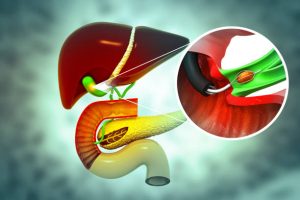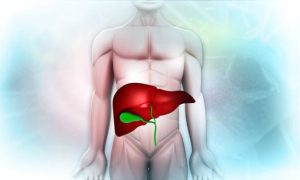
Young woman with gingivitis holding toothbrush isolated. Girl suffering from gum pain holding toothbrush. People holding toothbrush with gum problem
Mouth ulcers, also known as canker sores, are small, painful lesions that develop on the soft tissues inside the mouth, on the gums, or on the inner cheeks. They are usually benign and go away on their own, but they can cause significant discomfort, especially while eating, drinking, or speaking.
Causes:
- Injury: Biting the cheek, irritation from sharp teeth, or dental work can cause mouth ulcers.
- Stress or Anxiety: Emotional stress can trigger ulcers in some individuals.
- Dietary Deficiencies: Lack of vitamins, especially B12, iron, folate, or zinc, may lead to mouth ulcers.
- Food Sensitivities: Certain acidic or spicy foods can irritate the mouth lining, causing ulcers.
- Hormonal Changes: Women may experience mouth ulcers during their menstrual cycle or pregnancy due to hormonal fluctuations.
- Infections: Viral infections like herpes simplex can cause mouth ulcers.
- Autoimmune Disorders: Conditions like celiac disease, Crohn’s disease, and lupus can result in recurrent mouth ulcers.
- Medications: Certain drugs, such as NSAIDs, beta-blockers, or chemotherapy medications, can cause ulcers as a side effect.
- Oral Hygiene Products: Toothpastes and mouthwashes containing sodium lauryl sulfate (SLS) can cause irritation.
- Smoking Cessation: Ulcers may appear temporarily after quitting smoking.
Risk Factors:
- Family History: Mouth ulcers can run in families.
- Age: More common in teenagers and young adults, though they can occur at any age.
- Gender: Women are slightly more prone to mouth ulcers than men, possibly due to hormonal changes.
- Weakened Immune System: A weakened immune system due to illness or medications can increase susceptibility.
Symptoms:
- Painful Sores: Round or oval sores inside the mouth that are white or yellow in the center with a red border.
- Discomfort While Eating or Talking: Especially when consuming spicy or acidic foods.
- Swelling Around the Ulcers: Some swelling may occur around the affected area.
- Fever (Rare): In more severe cases, particularly with large or multiple ulcers, a fever may develop.
- Tenderness in the Mouth: A feeling of irritation or sensitivity in the affected area.
Prevention:
- Maintain Good Oral Hygiene: Brush and floss regularly to prevent infections or irritation.
- Avoid Trigger Foods: Limit consumption of spicy, acidic, or hard-to-chew foods that can irritate the mouth.
- Manage Stress: Practice stress-reducing techniques like meditation or exercise.
- Use Gentle Oral Care Products: Choose toothpastes and mouthwashes without sodium lauryl sulfate (SLS).
- Stay Hydrated: Drink plenty of water to keep your mouth hydrated and avoid dry mouth.
- Boost Immune System: Eat a balanced diet rich in vitamins and minerals, particularly B vitamins, iron, and zinc.
Diagnosis:
- Physical Examination: A dentist or doctor will usually diagnose mouth ulcers based on a visual examination.
- Blood Tests: If ulcers are recurring or severe, blood tests may be ordered to check for vitamin deficiencies, infections, or autoimmune diseases.
- Biopsy: In rare cases, a small sample of tissue may be taken from the ulcer to rule out other conditions, such as oral cancer.
Home Remedies:
- Salt Water Rinse: Mix a teaspoon of salt in warm water and rinse your mouth to reduce inflammation and promote healing.
- Baking Soda Paste: Mix baking soda with a little water to form a paste and apply it to the ulcer to neutralize acid and soothe pain.
- Honey: Known for its antibacterial properties, honey can be applied directly to the ulcer to aid healing and reduce discomfort.
- Coconut Oil: Applying coconut oil can reduce inflammation and protect the ulcer from bacteria.
- Aloe Vera Gel: Aloe vera helps soothe the ulcer and promotes healing.
- Cold Compresses: Place an ice cube on the ulcer to numb the area and reduce swelling.
- Clove Oil: Clove oil has natural analgesic properties and can provide temporary pain relief when applied directly to the ulcer.
- Yogurt: Eating yogurt containing probiotics may help balance bacteria in the mouth and promote faster healing.
Treatment:
- Topical Gels or Ointments: Over-the-counter gels like benzocaine or corticosteroid ointments can reduce pain and inflammation.
- Mouth Rinses: Antimicrobial or steroid-based mouth rinses can help reduce swelling and pain.
- Oral Medications: In severe or recurrent cases, doctors may prescribe oral steroids or immune-modulating medications.
- Vitamin Supplements: If a deficiency is identified, taking supplements such as B12, iron, or folic acid may prevent recurrence.
- Pain Relief: Over-the-counter painkillers like ibuprofen or acetaminophen can help alleviate discomfort.
Precautions:
- Avoid Irritants: Steer clear of spicy, acidic, or hard foods while the ulcer is healing.
- Be Gentle with Oral Care: Use a soft-bristled toothbrush and avoid aggressive brushing around the ulcer.
- Avoid Smoking and Alcohol: These can irritate the ulcer and delay healing.
- Consult a Doctor for Persistent Ulcers: If an ulcer doesn’t heal within 2 weeks or is unusually large, seek medical advice.
- Monitor for Signs of Infection: Watch for signs of secondary infection, such as increased redness, pus, or fever.
Self-Care:
- Good Oral Hygiene: Maintain daily brushing and flossing with a soft toothbrush.
- Hydration: Drink plenty of water to stay hydrated and keep the mouth moist.
- Balanced Diet: Eat a diet rich in essential vitamins and minerals to prevent deficiencies.
- Protect the Ulcer: Avoid irritating the ulcer with hard or rough foods, and chew on the opposite side of the mouth.
- Rest and Stress Management: Take steps to manage stress and get enough rest, as fatigue and stress can exacerbate symptoms.
Disclaimer:
Mouth ulcers are usually benign and heal on their own within 1-2 weeks. However, if ulcers persist, recur frequently, or are accompanied by other concerning symptoms (such as fever, weight loss, or difficulty swallowing), it is important to seek medical advice. Home remedies and over-the-counter treatments can alleviate discomfort, but they should not replace professional diagnosis and care. Always consult a healthcare provider if you are unsure about your symptoms or if the ulcers become severe.








